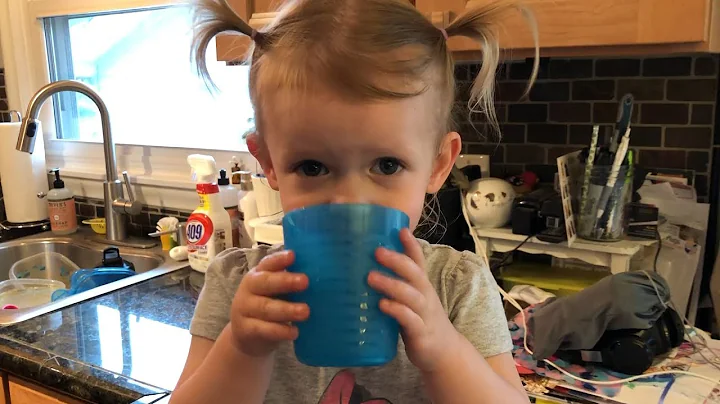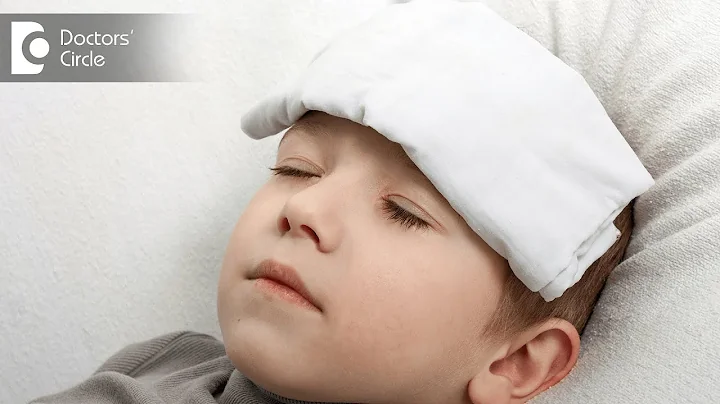Fever in babies is a relatively common health problem. Reasonable use of antipyretics at this time can relieve children's symptoms, but which antipyretics are suitable for children? If my fever doesn’t go away after taking anti-fever medicine, should I take it again? Let’s answer them one by one today.

- What antipyretic medicine should I take?
The World Health Organization recommends that the first choice drugs for reducing fever in children are acetaminophen (such as Tylenol ) and ibuprofen (such as Motrin ).
Acetaminophen (Tylenol), also known as Paracetamol . Suitable for babies over 3 months old. The dosage is 15mg/kg/time, and the best interval between doses is 4-6 hours. The maximum daily dose should not exceed 75mg/kg.
Ibuprofen (Motrin), suitable for babies over 6 months old. The one-time dosage is 10mg/kg/time, and the dosage interval needs to be longer, about 6-8 hours. The maximum daily dose does not exceed 40mg/kg.
There is little difference in the antipyretic effect of these two antipyretics, they have little irritation to the baby's gastrointestinal tract and are relatively safe. There are two common types on the market: drops and suspension , with the latter being preferred.
Because sweeteners are added to such medicines, they have a fruity aroma, so the baby will not particularly reject or resist taking the medicine.
Different types of antipyretics have different dosages. When actually taking it, parents must read the instructions carefully and consult a professional doctor online if necessary before giving it to their children.
Parents and friends also need to be aware that aspirin, metamizole , nimesulide are prohibited antipyretics for children!
- When should you take antipyretics?
Many parents take it for granted: "A child can only take antipyretics when his fever reaches a rectal temperature of 39° (oral temperature 38.5° or axillary temperature 38.2°)." This view is unscientific.
Whether a child needs to take antipyretics mainly depends on the child's own mental state and physical comfort.
After a child has a fever, if the child is in good spirits and has not affected normal eating, drinking and playing, even if the rectal temperature exceeds 39° (oral temperature 38.5° or axillary temperature 38.2°), he does not need to take antipyretics.
However, if the child is mentally depressed, has severe mood swings, and feels obvious physical discomfort, even if the rectal temperature is less than 39° (oral temperature is 38.5° or axillary temperature is 38.2°), it is recommended to take antipyretics by himself first to see the effect.
- Can antipyretics be taken multiple times?
Mothers often report that after taking antipyretics, their children only temporarily cool down; after the effect of the medicine wears off, their children start to have a fever again.

This is normal. Taking antipyretics when a child has a fever is mainly to reduce the discomfort caused by the fever so that the child does not feel so uncomfortable, but it cannot fundamentally eliminate the virus.
Therefore, by continuously observing the child's body temperature, if the child is in good mental state and emotionally stable, the same antipyretic drug can be taken again 6 hours after the last dose. But remember: Do not take antipyretics more than 4 times in 24 hours, and do not take them for more than 3 days in a row.
It should also be emphasized that the guidelines for the use of antipyretics in children in various countries do not recommend the combined or alternate use of two antipyretics (acetaminophen and ibuprofen). Although this has a slightly better cooling effect, it will aggravate the child's discomfort, and the gain outweighs the gain.
- If a child has a fever, when should he go to the hospital?
For babies under 3 months old, once they have a fever, they should go to the hospital immediately. Choosing the appropriate treatment plan according to the doctor's advice is the most prudent way to deal with it.
In addition, if babies of all ages have the following body temperatures, it is recommended to go to the hospital immediately:
Babies between 3-6 months old, rectal temperature ≥38.3°
Babies over 6 months old, rectal temperature ≥39.4°
Babies over 1 year old , a high fever that persists for 2 days
If your child has a fever and is accompanied by rash, repeated vomiting, or even convulsions, or has underlying diseases (such as heart disease, blood system diseases, etc.), you need to seek medical treatment as soon as possible and let the doctor judge the condition.

Finally, let me summarize: When using antipyretics for children, there is no absolute rule as to how high or low they should be used and how low they should not be used. The key is to choose according to the comfort of the child.
In order to reduce the suffering of children with fever, parents must keep these four points in mind. Only by scientifically taking antipyretics can the baby return to a healthy state of being active and bouncing as soon as possible.





















